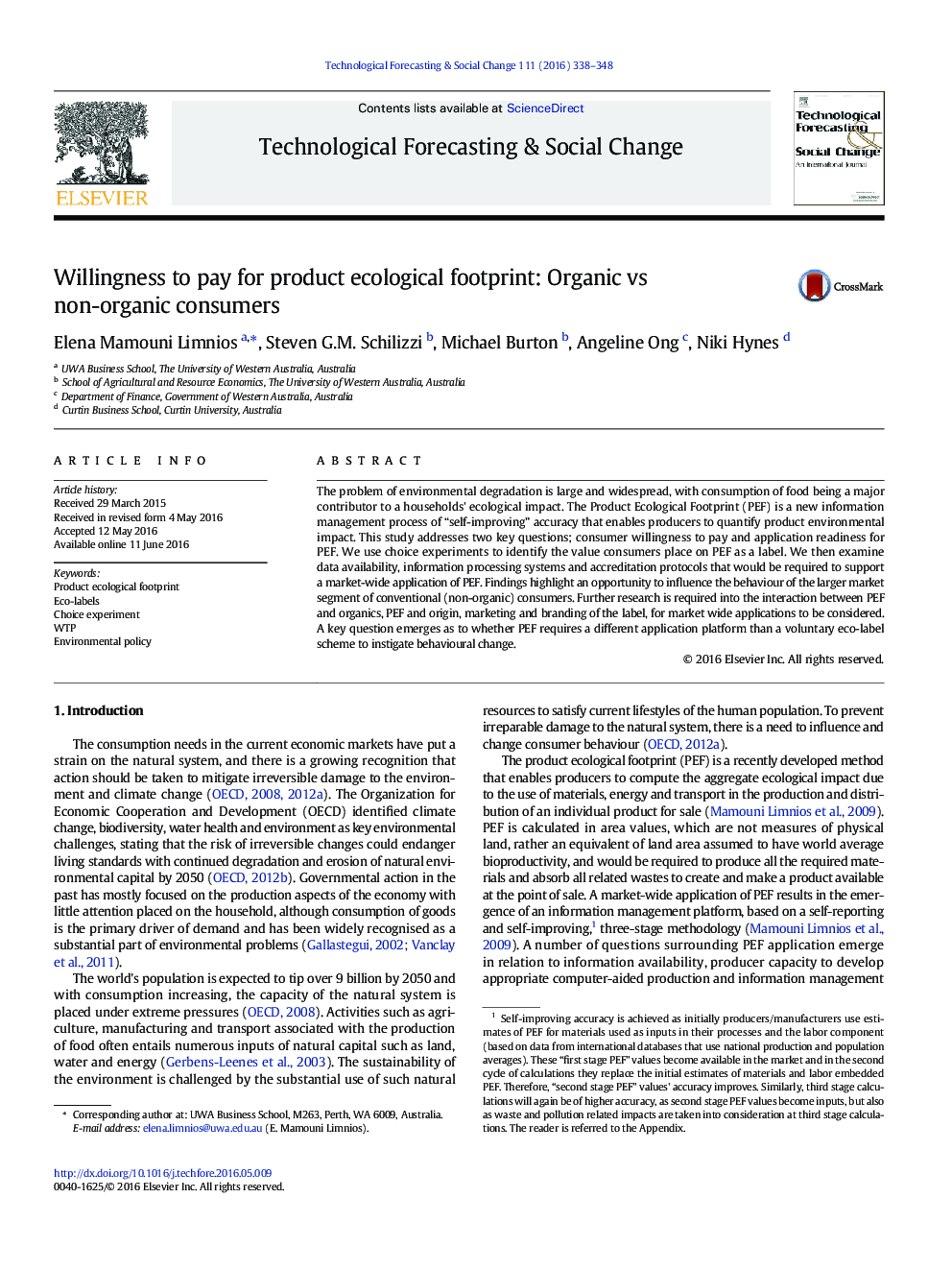| Article ID | Journal | Published Year | Pages | File Type |
|---|---|---|---|---|
| 5037173 | Technological Forecasting and Social Change | 2016 | 11 Pages |
â¢Organic purchasers have no significant value for PEF information.â¢In the presence of PEF, non-organic purchasers are willing to pay for lower PEF.â¢The value of PEF is likely to be higher when normalising PEF values.â¢Valuations of holistic eco-labels should consider organic halo effects.
The problem of environmental degradation is large and widespread, with consumption of food being a major contributor to a households' ecological impact. The Product Ecological Footprint (PEF) is a new information management process of “self-improving” accuracy that enables producers to quantify product environmental impact. This study addresses two key questions; consumer willingness to pay and application readiness for PEF. We use choice experiments to identify the value consumers place on PEF as a label. We then examine data availability, information processing systems and accreditation protocols that would be required to support a market-wide application of PEF. Findings highlight an opportunity to influence the behaviour of the larger market segment of conventional (non-organic) consumers. Further research is required into the interaction between PEF and organics, PEF and origin, marketing and branding of the label, for market wide applications to be considered. A key question emerges as to whether PEF requires a different application platform than a voluntary eco-label scheme to instigate behavioural change.
